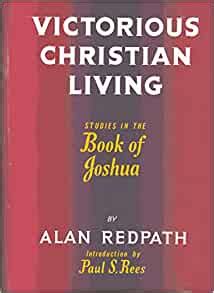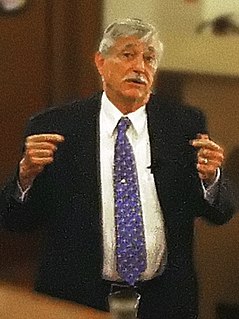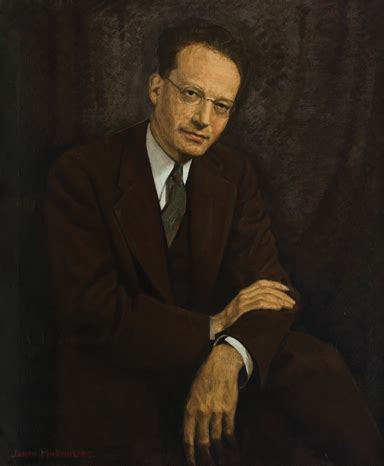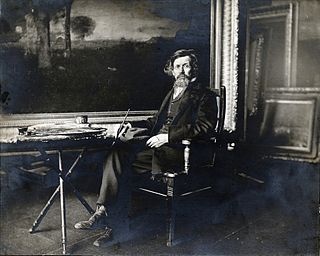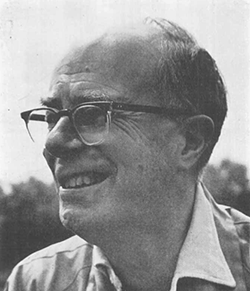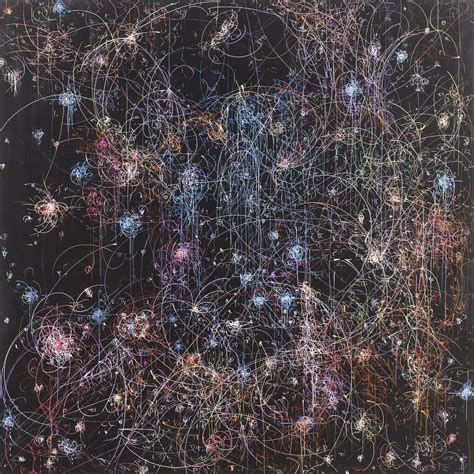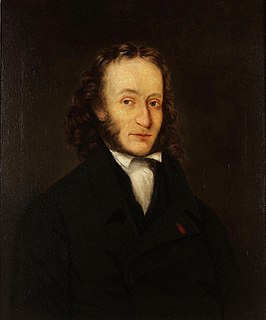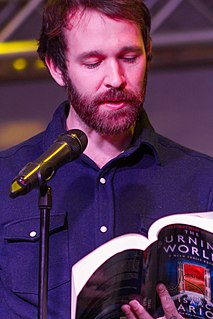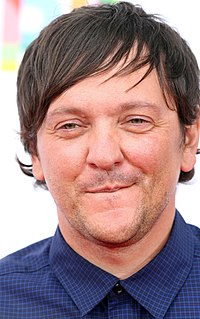Top 1012 Quotation Marks Quotes & Sayings - Page 17
Explore popular Quotation Marks quotes.
Last updated on April 17, 2025.
In the West nowadays, it's very common to talk about the Judeo- Christian tradition. It's a common term. The term is relatively modern but the reality is an old one. One could with equal justification talk about a Judeo-Islamic tradition or a Christian-Islamic tradition. These three religions are interlinked in many signification ways, which marks them off from the rest of the world. And I think there is a growing awareness of this among Christians and among Jews, and even to some extent to some Muslims. That's happening for obvious reasons.
Deep down in the Christian's life, always and all the time, there is to be a "no" to every demand that the flesh may make for recognition, and every demand that the flesh may make for approval, and every demand that the flesh may make for vindication. Always the Christian must bear about in his body the marks of the Lord Jesus.
Picture yourself during the early 1920's inside the dome of the Mount Wilson Observatory. ... Humason is showing Shapley stars he had found in the Andromeda Nebula that appeared and disappeared on photographs of that object. The famous astronomer very patiently explains that these objects could not be stars because the Nebula was a nearby gaseous cloud within our own Milky Way system. Shapley takes his handkerchief from his pocket and wipes the identifying marks off the back of the photographic plate.
I have scars on my hands from touching certain people...Certain heads, certain colours and textures of human hair leave permanent marks on me. Other things, too. Charlotte once ran away from me, outside the studio, and I grabbed her dress to stop her, to keep her near me. A yellow cotton dress I loved because it was too long for her. I still have a lemon-yellow mark on the palm of my right hand. Oh God, if I'm anything by a clinical name, I'm a kind of paranoiac in reverse. I suspect people of plotting to make me happy.
Money is different from all other commodities: other things being equal, more shoes, or more discoveries of oil or copper benefit society, since they help alleviate natural scarcity. But once a commodity is established as a money on the market, no more money at all is needed. Since the only use of money is for exchange and reckoning, more dollars or pounds or marks in circulation cannot confer a social benefit: they will simply dilute the exchange value of every existing dollar or pound or mark.
When a man’s heart is cold and unconcerned about religion – when his hands are never employed in doing God’s work – when his feet are not familiar with God’s ways – when his tongue is seldom or never used in prayer and praise – when his eyes are blind to the beauty of the kingdom of heaven – when his mind is full of the world, and has no room for spiritual things – when these marks are to be found in a man the word of the Bible is the right word to use about him, and that word is, ‘Dead.’
Morphlabs is excited about the OpenStack release of Essex. We believe that this release positions OpenStack to become the foundation for next generation dynamic cloud infrastructure. We are building a fully-converged private platform around Essex, leveraging best-of-breed cloud building blocks to deliver a high-performance, flexible solution. This release marks a major a proof point of OpenStack?s commitment to open community development and pluggable APIs, which benefits the entire cloud ecosystem.
It is a pity that so many Americans today think of the Indian as a romantic or comic figure in American history without contemporary significance. In fact, the Indian plays much the same role in our society that the Jews played in Germany. Like the miner’s canary, the Indian marks the shift from fresh air to poison gas in our political atmosphere; and our treatment of Indians, even more than our treatment of other minorities, reflects the rise and fall in our democratic faith.
Don't get me wrong, Carter Smith is an insanely talented photographer, but as a director he approached it more from a story standpoint. He definitely had an interest in communicating the text and the characters first, and he allowed his cinematographer Darren Lew to really find the visuals - of course, he worked with him throughout the entire Jamie Marks Is Dead movie, it was a collaborative effort. While the movie is very visually beautiful, in my opinion, very visually striking, Carter was definitely approaching it from a performance standpoint first.
They tell you to memorize your lines, follow your light, and hit your marks. Those are the three things that you shouldn't do. You should not learn your lines, you should not hit your mark, and you should never follow your light. Find your light - that's my opinion. Everyone else will tell me I'm wrong, but that's my opinion.
One of the marks of a certain type of bad man is that he cannot give up a thing himself without wanting every one else to give it up. That is not the Christian way. An individual Christian may see fit to give up all sorts of things for special reasons--marriage, or meat, or beer, or the cinema; but the moment he starts saying the things are bad in themselves, or looking down his nose at other people who do use them, he has taken the wrong turning.
Sherlock Holmes took his bottle from the corner of the mantel-piece, and his hypodermic syringe from its neat morocco case. With his long, white, nervous fingers he adjusted the delicate needle, and rolled back his left shirt-cuff. For some little time his eyes rested thoughtfully upon the sinewy forearm and wrist, all dotted and scarred with innumerable puncture-marks. Finally, he thrust the sharp point home, pressed down the tiny piston, and sank back into the velvet-lined armchair with a long sigh of satisfaction.
You will not get to steal quietly into heaven, into Christ's company, without a conflict and a cross. I find crosses to be Christ's carved work that he marks out for us and that with crosses he portraits us to his own image, cutting away pieces of our ill and corruption. Lord cut - Lord carve - Lord wound - Lord do anything that may perfect thy Father's image in us and make us ready for glory.
Let her arm go and pray she has no bruise,” a familiar voice said in a low angry tone. I shuddered from relief at the sound of his voice. Trey released my arm and shrugged, grinning. “I just wanted an oyster, and she wouldn’t serve me.” I opened my mouth to protest when the warm fingers holding my arm softly squeezed me for reassurance. So, I stayed quiet. “Jason, please escort your friend to the door. I have no other reason to speak with him unless Sadie has a bruise or any lasting marks from his hands, and then he will see me again.
The highest art is where has been most perfectly breathed the sentiment of humanity...Some persons suppose that landscape has no power of communicating human sentiment. But this is a great mistake. The civilized landscape peculiarly can: and therefore I love it more and think it more worthy of reproduction than that which is savage and untamed. It is more significant. Every act of man, every thing of labor, effort, suffering, want, anxiety, necessity, love, marks itself wherever it has been.
Here I am, your one man circus freak show, having bled out for mother Russia, having desperately tried to get to you, now on top of you with this scourge marks, and you, who used to love me, who was sympathized, internalized, normalized everything, you are not allowed to turn away from me....this is what I am going to look like until the day I die. I can't get any peace from you ever unless you find away to make peace with this. Make peace with me. Or let me go for good.
In this age, the mere example of non-conformity, the mere refusal to bend the knee to custom, is itself a service. Precisely because the tyranny of opinion is such as to make eccentricity a reproach, it is desirable, in order to break through that tyranny, that people should be eccentric. Eccentricity has always abounded when and where strength of character has abounded; and the amount of eccentricity in a society has generally been proportional to the amount of genius, mental vigor, and moral courage which it contained. That so few now dare to be eccentric, marks the chief danger of the time.
There was a sergeant at a desk. I knew he was a sergeant because I recognized the marks on his uniform, and I knew it was a desk because it's always a desk. There's always someone at a desk, except when it's a table that functions as a desk. You sit behind a desk, and everyone knows you're supposed to be there, and that you're doing something that involves your brain. It's an odd, special kind of importance. I think everyone should get a desk; you can sit behind it when you feel like you don't matter.
Leo smiled and stroked her hair. 'We'll both be fine, Marks. We've just begun our journey...and there's so much we have yet to do.' He spoke more softly as he heard her breathing turn even and steady. 'Rest against my heart. Let me watch over your dreams. And know that tomorrow morning, and every morning after that, you'll awaken next to someone who loves you.' 'Dodger?' she mumbled against his chest, and he grinned. 'No, your confounded ferret will have to stay in his basket. I was referring to myself.' 'Yes, I know.' Catherine slid her hand up to his cheek. 'Only you,' she said. 'Always you.
An argument is made that there are just too many question marks about the near future; wouldn't it be better to wait until things clear up a bit? You know the prose: "Maintain buying reserves until current uncertainties are resolved," etc. Before reaching for that crutch, face up to two unpleasant facts: The future is never clear and you pay a very high price for a cheery consensus. Uncertainty actually is the friend of the buyer of long-term values.
I remember reading about a court case where a man tried to stab a judge with a pencil. There are Google pages full of similar instances around the world. It's obvious that the pencil lends itself to precisely that kind of use. It's not as lacking in dominance as you might think. I have an article on the fallacy of the designer intent because a lot of designers think they can design uses into technology. You can't do that. I use the pen, I make the mark, but the pen is also using me. The pen could be said to be allowing these kinds of marks. I can't do just anything with the pen.
[Mary Wortley Montagu] wrote more letters, with fewer punctuation marks, than any Englishwoman of her day; and her nephew, the fourth Baron Rokeby, nearly blinded himself in deciphering the two volumes of undated correspondence which were printed in 1810. Two more followed in 1813, after which the gallant Baron either died at his post or was smitten with despair; for sixty-eight cases of letters lay undisturbed ... 'Les morts n'écrivent point,' said Madame de Maintenon hopefully; but of what benefit is this inactivity, when we still continue to receive their letters?
The denial of any distinction between foreseen and intended consequences, as far as responsibility is concerned, was not made by Sidgwick in developing any one 'method of ethics'; he made this important move on behalf of everybody and just on its own account; and I think it plausible to suggest that this move on the part of Sidgwick explains the difference between old-fashioned Utilitarianism and the consequentialism, as I name it, which marks him and every English academic moral philosopher since him.
Critics are giving marks for originality, acting, photography and scripting, while mass audiences are more drawn to familiarity of genre, stars they would like to have sex with or plots that are more likely to make their dates have sex with them. Reviewers are doing their day's work, cinema-goers are escaping from theirs: this leads to an inevitable difference of response. It is, though, wrong to conclude that reviewers are completely useless. Books, movies and shows may be critic-proof, but the egos and psyches of the people who make them very rarely are.
There have been five great kisses since 1642 B.C. when Saul and Delilah Korn's inadvertent discovery swept across Western civilization. (Before then couples hooked thumbs.) And the precise rating of kisses is a terribly difficult thing, often leading to great controversy, because although everyone agrees with the formula of affection times purity times intensity times duration, no one has ever been completely satisfied with how much weight each element should receive. But on any system, there are five that everyone agrees deserve full marks. Well, this one left them all behind.
On consideration, it is not surprising that Darwin's finches should recognize their own kind primarily by beak characters. The beak is the only prominent specific distinction, and it features conspicuously both in attacking behaviour, when the birds face each other and grip beaks, and also in courtship, when food is passed from the beak of the male to the beak of the female. Hence though the beak differences are primarily correlated with differences in food, secondarily they serve as specific recognition marks, and the birds have evolved behaviour patterns to this end.
There is an ecstasy that marks the summit of life, and beyond which life cannot rise. And such is the paradox of living, this ecstasy comes when one is most alive, and it comes as a complete forgetfulness that one is alive. This ecstasy, this forgetfulness of living, comes to the artist, caught up and out of himself in a sheet of flame; it comes to the soldier, war-mad in a stricken field and refusing quarter; and it came to Buck, leading the pack, sounding the old wolf-cry, straining after the food that was alive and that fled swiftly before him through the moonlight.
I know no study which is so unutterably saddening as that of the evolution of humanity, as it is set forth in the annals of history. Out of the darkness of prehistoric ages man emerges with the marks of his lowly origin strong upon him. He is a brute, only more intelligent than the other brutes, a blind prey to impulses, which as often as not led him to destruction; a victim to endless illusions, which make his mental existence a terror and a burden, and fill his physical life with barren toil and battle.
The government of Libya announced the death of Moammar Gadhafi. This marks the end of a long and painful chapter for the people of Libya, who now have the opportunity to determine their own destiny in a new and democratic Libya. The Gadhafi regime ruled the Libyan people with an iron fist. The enormous potential of the Libyan people was held back and terror was used as a political weapon. The last major regime strongholds have fallen. The new government is consolidating the control over the country. And one of the world's longest-serving dictators is no more.
I think the act of reading imbues the reader with a sensitivity toward the outside world that people who don't read can sometimes lack. I know it seems like a contradiction in terms; after all reading is such a solitary, internalizing act that it appears to represent a disengagement from day-to-day life. But reading, and particularly the reading of fiction, encourages us to view the world in new and challenging ways...It allows us to inhabit the consciousness of another which is a precursor to empathy, and empathy is, for me, one of the marks of a decent human being.
[Fireheart] was interrupted by a screech from Cloudtail. "Fireheart! Fireheart, Brightpaw isn't dead!" Fireheart spun around and raced across the clearing to crouch beside Brightpaw. Her white-and-ginger fur, which, she had always kept so neatly groomed, was spiky with drying blood. On one side of her face the fur was torn away, and there was blood where her eye should have been. One ear had been shredded, and there were huge claw marks scored across her muzzle.
They hold their great balls in the open air, in what is called a fairy-ring. For weeks afterward you can see the ring on the grass. It is not there when they begin, but they make it by waltzing round and round. Sometimes you will find mushrooms inside the ring, and these are fairy chairs that the servants have forgotten to clear away. The chairs and the rings are the only tell-tale marks these little people leave behind them, and they would remove even these were they not so fond of dancing that they toe it till the very moment of the opening of the gates.
Looking at the huge number of transgender women of color who have been murdered since the beginning of the year - that we know of - the number has reached seven or eight at this point, maybe even nine, since the start of 2015. The number of those women involved in sex work is not a piece that gets lifted up in news reports. Sometimes people want to bury that, because they don't want to say anything that might make it seem as though those women were asking for it. We're still living with the idea that sex work somehow marks people as acceptable targets for violence.
More and more it seems to me that the philosopher, being of necessity a man of tomorrow and the day after tomorrow, has always found himself, and had to find himself, in contradiction to his today: his enemy was ever the ideal of today. So far all these extraordinary furtherers of men whom one calls philosophers, though they themselves have rarely felt like friends of wisdom but rather like disagreeable fools and dangerous question marks, have found their task, their hard, unwanted, inescapable task, but eventually also the greatness of their task, in being the bad conscience of their time.
A rich man's body is like a premium cotton pillow, white and soft and blank. ''Ours'' is different. My father's spine was a knotted rope, the kind that women use in villages to pull water from wells; the clavicle curved around his neck in high relief, like a dog's collar; cuts and nicks and scars, like little whip marks in his flesh, ran down his chest and waist, reaching down below his hip bones into his buttocks. The story of a poor man's life is written on his body, in a sharp pen.
There's stable subatomic particles - protons, neutrons, electrons - and then there's unstable ones that decay into stable ones. One will become many. There's this constant process of transformation that underlies everything in the entire universe. They also make these beautiful marks through time. It's like the universe was drawing, essentially, at this fundamental level. There's always an alphabet that's based in natural patterns. Sometimes they're just by themselves, sometimes they build up these other things that relate to the conception, that are more at our level of existence.
His eyes shone when he looked at her, green as spring grass. He has always had green eyes, said the voice in her head. People often marvel at how much alike you are, he and your mother and yourself. His name is Jonathan and he is your brother; he has always protected you. Somewhere in the back of Clary’s mind she saw black eyes and whip marks, but she didn’t know why. He’s your brother. He’s your brother, and he’s always taken care of you.
Motherhood involves a special communion with the mystery of life, as it develops in the mother's womb. The mother is filled with wonder at this mystery of life, and 'understands' with unique intuition what is happening inside her. In the light of the 'beginning', the mother accepts and loves as a person the child she is carrying in her womb. This unique contact with the new human being developing within her gives rise to an attitude towards human beings - not only towards her own child, but every human being - which profoundly marks the woman's personality.
Now the work of art also represents a state of final equilibrium, of accomplished order and maximum relative entropy, and there are those who resent it. But art is not meant to stop the stream of life. Within a narrow span of duration and space the work of art concentrates a view of the human condition; and sometimes it marks the steps of progression, just as a man climbing the dark stairs of a medieval tower assures himself by the changing sights glimpsed through its narrow windows that he is getting somewhere after all.
On December 12, 1829, Paganini wrote his friend Germi: "The variations I've composed on the graceful Neapolitan ditty, 'Oh Mamma, Mama Cara,' outshine everything. I can't describe it!" He was writing from Karlsruhe, in the midst of his triumphal tour through Germany. That letter marks the earliest known mention of the variations that would become famous as "The Carnival of Venice." At the time of his letter, Paganini had already performed the piece in at least four concerts. From then on, it would be one of his most popular compositions.
There were obvious budgetary and time constraint differences. With Jamie Marks is Dead, we were operating on a pretty small finance level. So it was definitely run-and-gun, 16-hour days, every day. I would come back, and I was so exhausted I would fall asleep in my clothes. Obviously, with The Giver we had a little bit more time to take the full three months. So that was different, but in both there was still a creative environment, and by that I mean that it was still collaborative, performance was still valued, and it wasn't lost in the money.
I think for a minute. Watching my wife fade into the distance, I put a hand on my heart. "Dead." I wave a hand toward my wife. "Dead." My eyes drift toward the sky and lose their focus. "Want it...to hurt. But...doesn't." Julie looks at me like she's waiting for more, and I wonder if I've expressed anything at all with my halting, mumbled soliloquy. Are my words ever actually audible, or do they just echo in my head while people stare at me, waiting? I want to change my punctuation. I long for exclamation marks, but I'm drowning in ellipses.
Morley put his hand over his heart and bowed from the waist, a gesture that somehow reminded Claire of Myrnin. It reminded her she missed him, too, which was just wrong. She should not be missing Morganville, or anyone in it. Especially not the crazy boss vampire who’d put fang marks in her neck that would never, ever go away. She was doomed to high-necked shirts because of him. But she did miss him.
Books are frozen voices, in the same way that musical scores are frozen music. The score is a way of transmitting the music to someone who can play it, releasing it into the air where it can once more be heard. And the black alphabet marks on the page represent words that were once spoken, if only in the writer's head. They lie there inert until a reader comes along and transforms the letters into living sounds. The reader is the musician of the book: each reader may read the same text, just as each violinist plays the same piece, but each interpretation is different.
What I noticed at Grace-Calvary is the same thing I notice whenever people aim to solve their conflicts with one another by turning to the bible: defending the dried ink marks on the page becomes more vital than defending their neighbor. As a general rule, I would say that human beings never behave more badly toward one another than when they believe they are protecting God. In the words of Arun Gandhi, grandson of Mohandas, 'People of the Book risk putting the book above people.
Literature is love. I think it went like this: drawings in the cave, sounds in the cave, songs in the cave, songs about us. Later, stories about us. Part of what we always did was have sex and fight about it and break each other’s hearts. I guess there’s other kinds of love too. Great friendships. Working together. But poetry and novels are lists of our devotions. We love the feel of making the marks as the feelings are rising and falling. Living in literature and love is the best thing there is. You’re always home.
Let the awe [the teacher] has upon [children's] minds be so tempered with the constant marks of tenderness and good will, that affection may spur them to their duty, and make them find a pleasure in complying with his dictates. This will bring them with satisfaction to their tutor; make them hearken to him, as to one who is their friend, that cherishes them, and takes pains for their good; this will keep their thoughts easy and free, whilst they are with him, the only temper wherein the mind is capable of receiving new information, and of admitting into itself those impressions.
I culled poetry from odors, sounds, faces, and ordinary events occurring around me. Breezes bulged me as if I were cloth; sounds nicked their marks on my nerves; objects made impressions on my sight as if in clay. There, in the soft language, life centered and ground itself in me and I was flowing with the grain of the universe. Language placed my life experiences in a new context, freeing me for the moment to become with air as air, with clouds as clouds, from which new associations arose to engage me in present life in a more purposeful way.
Once I got into high school, any time I had to do a talk or a speech, I just loved being up in front of an audience, it was always a character. And then I discovered that an impersonation of the teacher was a really, really good way to get a laugh, and it would also get you good marks, because the teachers were always bored and loved to be the "teacher-parody." So that became my little trick at school, and I became known for doing that.
Bidding the wizard farewell, he turned to his daughter, who held up her finger and said, “Daddy, look — one of the gnomes actually bit me!” “How wonderful! Gnome saliva is enormously beneficial!” said Mr. Lovegood, seizing Luna’s outstretched finger and examining the bleeding puncture marks. “Luna, my love, if you should feel any burgeoning talent today — perhaps an unexpected urge to sing opera or to declaim in Mermish — do not repress it! You may have been gifted by the Gernumblies!” Ron, passing them in the opposite direction, let out a loud snort.
Never lose yourself on the stage. Always act in your own person, as an artist. The moment you lose yourself on the stage marks the departure from truly living your part and the beginning of exaggerated false acting. Therefore, no matter how much you act, how many parts you take, you should never allow yourself any exception to the rule of using your own feelings. To break that rule is the equivalent of killing the person you are portraying, because you deprive him of a palpitating, living, human soul, which is the real source of life for a part.
Others of them employ outward marks ... They style themselves Gnostics. They also possess images, some of them painted and others formed from different kinds of material. They maintain that a likeness of Christ was made by Pilate at that time when Jesus lived among them. They crown these images, and set them up along with the images of the philosophers of the world, such as Pythagoras, Plato, and Aristotle, and the rest. They have also other modes of honoring these images just like the Gentiles.

